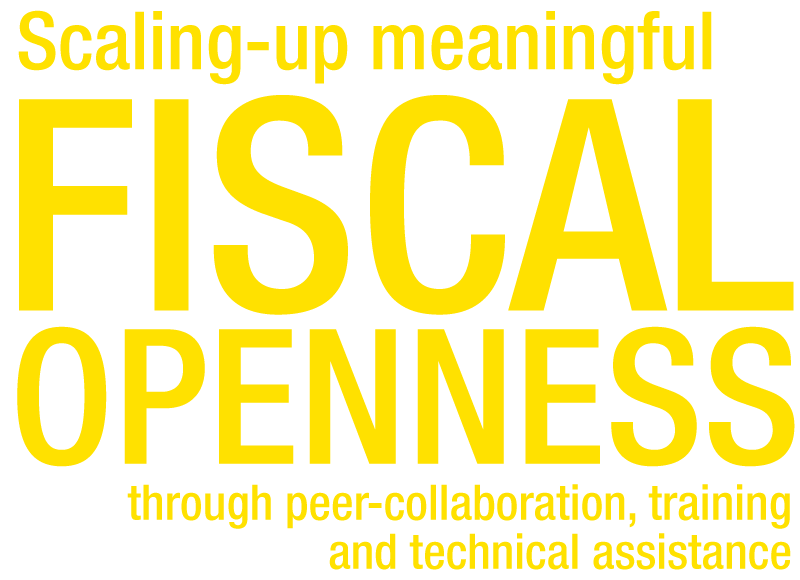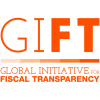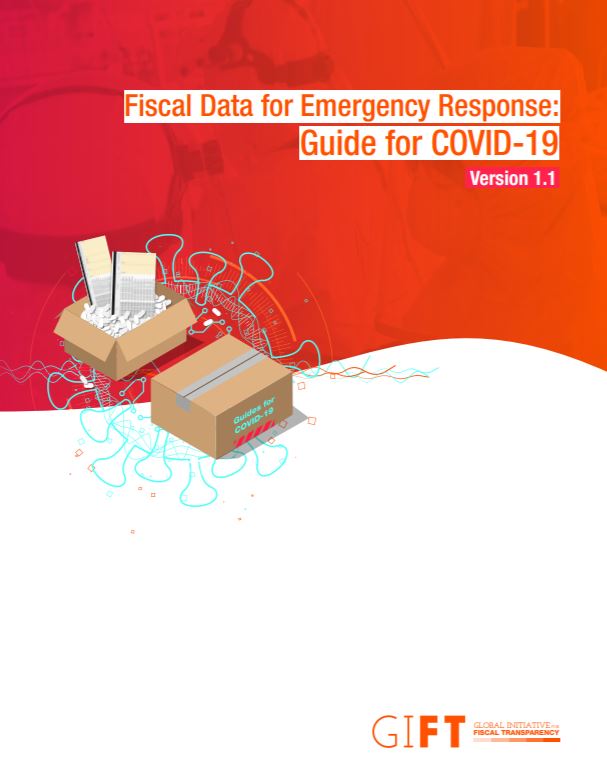
Based on its peer-learning and technical collaborative experience, the GIFT network seeks to develop a long-term training and peer-supported technical collaborative program in coordination with its Stewards. GIFT’s intervention will help countries understand both the standards on fiscal transparency, as well as how they can improve their proactive publication practices by modeling the efforts of their peers in other countries that have achieved good levels of fiscal transparency, taking into consideration the users’ needs.
The GIFT is uniquely positioned to generate the collective actions needed within its Stewards (19 Ministries of Finance, 15 Civil Society Organizations and expert and international institutions) to adopt meaningful fiscal openness. Throughout the past five years, the constant coordination of interaction and peer-support has created a community of practitioners with a shared mission and goals. Within its members, GIFT is perceived as a trusted partner to support their progress and innovate, as well as an open and neutral ground of discussion around the future and challenges related to the agenda. The GIFT network model of peer-collaboration has been the core to achieve high impact results that extend further than the specific actions of the coordination team, it:
- Promotes trust among peers to collaborate in sharing knowledge and tools. We have organized countless in-person or online peer-learning activities by identifying shared objectives, good practices and challenges among Stewards, as well as yearly community events where representatives of all organizations share their progress and challenges, enabling honest and practical collaboration.
- Enables economies of scale in advancing the agenda, whether it requires legal reforms, changes in processes or adoption of digital tools. The identification of good practices, as well as challenges and failures, allow shortening the path of the members to achieve their goals. Additionally, members also share practical tools for publication or use of fiscal information, including opening their code for digital platforms as well as methodologies.
- Facilitates the conversation between civil society and governments in a collaborative form. The discourse and actions, in general, of the Stewards have shifted from improving in a normative sense against national and international standards, to adopting a user-centered approach for relevant fiscal transparency -where norms are and international standards are observed, but potential users are also considered in modeling progress.
- Creates a race to the top of governments and civil society peers that lead to innovation and sustained gains. Interaction with peers and exposure to international examples creates a sense of possibilities and aspirations for the members. This, in turn, creates a positive dynamic where members are more open to innovative approaches.
Raising the bar for the GIFT members, in 2018 the operating rules of the Network were changed as a relevant evolution towards becoming a group of fiscal transparency champions. As such, to foster closer collaboration, GIFT compiles in a dashboard the actions being implemented by its members. The compilation of actions from this broad range of members allows us to have a practical understanding of the present and future priorities in the subject to adapt our agenda and work. Some of the trends that we can already identify are: high interest in publication of open data, but also now on its use to achieve social and economic objectives; a bigger focus on increasing the number and types of users of fiscal information through budget and data literacy efforts initiated both from civil society or governments, and in some cases together; thematic focus of fiscal transparency, mainly for gender, performance and Sustainable Development Goals (SDGs); and upcoming plans to integrate public participation along the budget cycle.
What we seek
to achieve
We aim to contribute towards achieving concrete improvements in user-centered fiscal transparency and public participation practices in line with international standards. We will accomplish this through the development of the following actions:
A) Peer-collaboration and technical assistance for Stewards
How it works
Over the past five years, the GIFT network has successfully used this model of technical collaboration and peer-exchanges, including dialogue with civil society users of information. We expect to host one annual training and peer-exchange event in which representatives of the 19 governments and 15 civil society organizations participate. The topic for each event will be defined collaboratively through the Network and taking into consideration the trends analysis of the action plans included in the dashboard. We will also produce regular peer-exchange opportunities in person and online (through webinars or similar tools), depending on the best areas of collaboration among Stewards. The first set of five webinars for 2020 will focus on the production, dissemination and use of non-financial performance information, including the focus on thematic areas of gender, environmental finances and the SDGs.
B) Fiscal Openness Massive Open Online Course
How it works
Online course on fiscal transparency that can enable governments and other stakeholders to better understand the standards assessed as well as the steps they can take to improve their practices in line with those of other governments that have achieved high levels of transparency, addressing users’ needs. The online course would be open for governments (including parliament technical staff and audit institutions representatives) who are assessed but also by other stakeholders (such as donor agencies and civil society groups) who are interested in advancing their knowledge on fiscal transparency and their potential contributions to the efforts needed in their countries.
C) Targeted technical assistance
How it works
Targeted technical assistance with peer-learning for improving fiscal openness happens upon partners request. Different from action 1.1, this technical assistance requires more in-depth and specific support to a government or civil society organization from inside or outside of the GIFT Network. This technical collaboration entails engaging fiscal openness experts and peer practitioners, including opportunities for discussions with international peers on how to improve fiscal openness and overcome barriers. In this form, we are currently supporting Mongolia and from 2020 we will support Benin, Liberia and Nigeria.
GIFT Webinar Series Season 2





